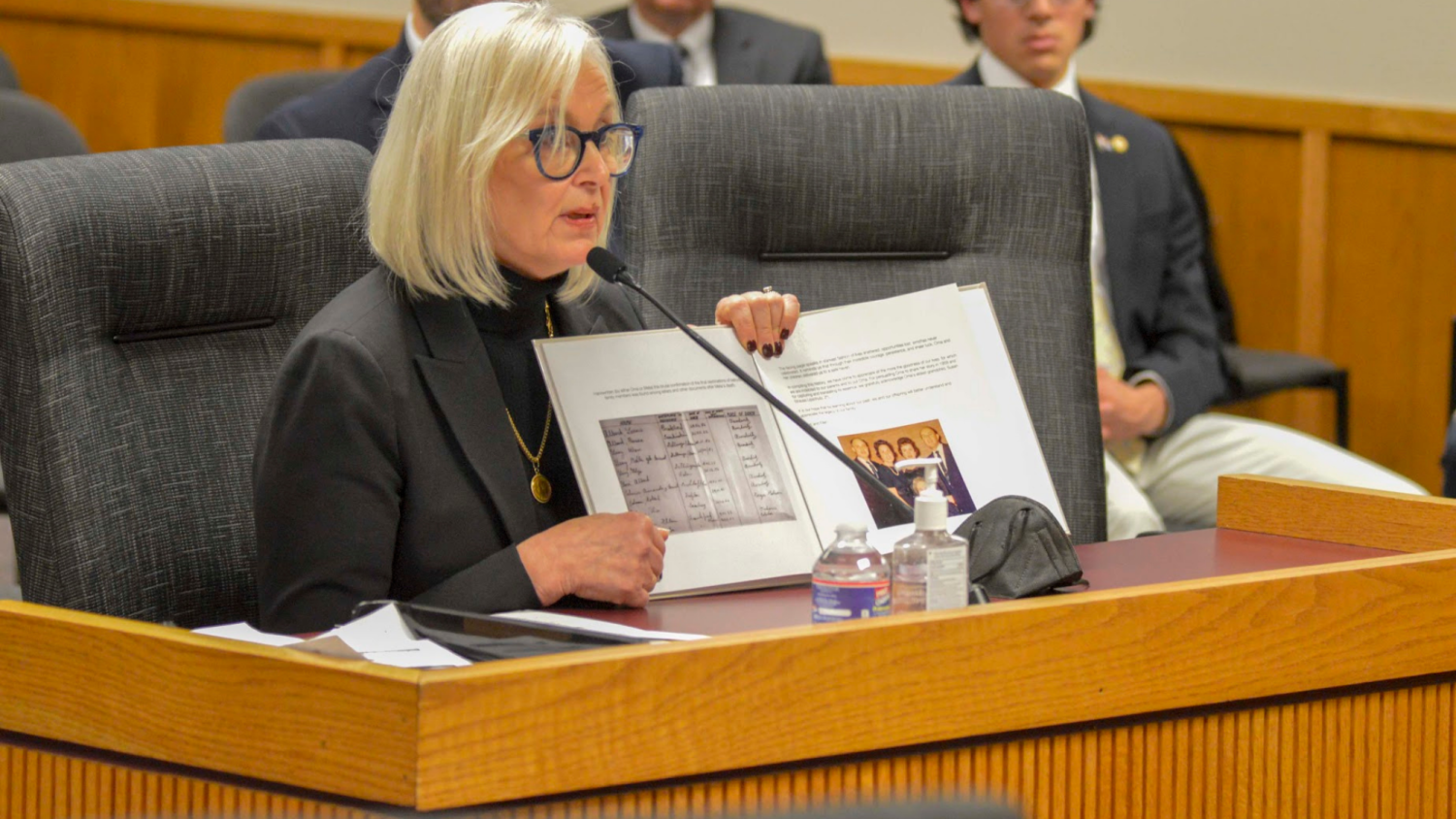(St. Louis Jewish Light) - Sometimes, in the darkest of times, there appears a small flickering light.
Late last month, I was honored to be among a formidable group that testified in the state capital in favor of HB2000, a bill promoting a week of (age-appropriate) Holocaust education in Missouri public schools. It is sponsored by Rep. Adam Schwadron, R-St. Charles, one of two Jewish members in the state House.
Each person testifying had a powerful story. As I scanned the faces of those on the House committee for reactions, I saw a softening, a recognition of humanity. Yes, a few members also were advancing bills to ban “uncomfortable” books and the teaching of accurate history.
Noah Kleinlehrer, a senior at Mary Institute and St. Louis Country Day School (MICDS), brought the Holocaust bill idea to Schwadron. HB2000 would expand the Missouri Holocaust Education Commission statute signed into law in 2006. Noah was the first to testify, telling the story of his grandfather’s survival, the impetus for his bill, as his proud parents, Rabbi Elizabeth Hersh Kleinlehrer of Temple Emanuel (St. Louis) and Robert Kleinlehrer, watched.
Noah was emphatic.
“I believe we must make ‘never again’ a reality,” he said. “If we stay silent and do not act, we validate the very essence of the ‘final solution,’ which is apathy, to turn a blind eye and to forget.”
Helen Turner of the St. Louis Kaplan Feldman Holocaust Museum and Allyssa Banford of the Jewish Community Relations Council (JCRC) also gave inspiring testimony, as did Rabbi Chaim Landa of the Chabad Jewish Center of St. Charles.
Retired high school teacher Jessica Piper drove eight hours from her northwest rural farm to tell the committee: “I’ve taught the story of Anne Frank and ‘Night’ by Elie Wiesel, teaching tough literature because stepping into someone else’s shoes and seeing the world through marginalized eyes leads to empathy, understanding and, often, solidarity.”
I testified on behalf of my husband, Burt, who, as a second-generation Holocaust survivor, regularly spoke to school and faith groups at the Holocaust museum in St. Louis. It was my first time back in the Missouri Capitol in three years, and I spoke of the survival story of Burt’s grandmother, Sophie Neumann, whom Burt and his cousin Ellen Mandel have immortalized in a treasured family book. I showed the committee a copy of Sophie’s handwritten list of her sisters and their respective death camps, most murdered at Auschwitz-Birkinau.
Our collective testimonies included the names of family members who were among the six million Jews taken from their homes, marched to starvation and gassed, the majority at Auschwitz-Birkenau. We emphasized the unimaginable horrors, even though it was uncomfortable to hear. We were determined to appeal to the committee’s hearts, knowing that many had never met a Jewish person or knew much about the Holocaust. Because few survivors are alive today, we were firm that our collective voices must overpower Holocaust deniers.
As a former House member, I can’t recall that many Jewish professionals ever testifying together during a hearing, particularly to a body that frequently uses inflammatory Nazi slurs and Holocaust references in bill debates.
I vividly recall that during a hearing before a committee on which I served, a skinhead wannabe wildly invoked the Holocaust. I waited for the committee chair or anyone to shut down his ugly words. No one did. So, I did. I will never forget the look of horror on the faces of people in the room, many of whom knew I was the only Jew on that committee and the intended target.
Last week, we saw a glimmer of hope in that Jefferson City basement hearing room amid increasing antisemitic threats to synagogues, neighborhoods and families. We explained that Jews live in fear in Missouri, as they do across the nation. As emotional as it was to be there, we insisted that these threats have to stop. We defiantly said that antisemitism must be overpowered.
Twenty-two states, including Texas, Florida and Arkansas, have recently signed similar Holocaust education bills into law. Schwadron, who grew up at Temple Israel in St. Louis, believes strongly that HB2000 can be passed into law in Missouri. I’ve vowed to help him do just that.
“Never again” is not just a slogan or a hashtag. It’s our mission.
Stacey Newman, a former Missouri state representative, is the executive director of ProgressWomen, a statewide social justice group focused on justice and equality issues.
This commentary was originally published in the St. Louis Jewish Light.



